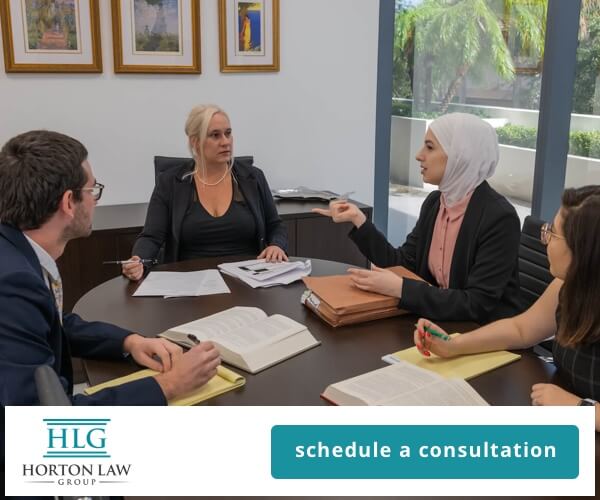
If you have a child in Florida and the Court enters an Order on timesharing between you and the other parent, you cannot leave the state of Florida or “relocate” without obtaining an Order from the Court allowing you to leave without or without the child. If you leave the state of Florida with the child without an Order of the Court, the Court has the power to make you return the child to Florida. If you leave the state of Florida, without the child, the Court has the power to deny you long-distance timesharing.
The defense of “I did not know I have to seek a Relocation Order prior to leaving” is NOT a valid defense. Courts frown upon parents who leave the state of Florida with children without seeking leave of the Court to do so.
Relocation litigation is intense. Usually, one parent wants to relocate out of state for a job, or to be with family, or because they are remarrying someone who lives elsewhere – while the other parent resides in the state of Florida and does not want to lose any timesharing with their children. Hence the fight begins as to where the child will reside.
Why Hire the Horton Law Group, P.A?
The principal partner at the Horton Law Group, P.A., Attorney Sommer C. Horton, is an experienced and aggressive litigator. She is highly regarded for her creativeness, strategic judgment, and her uncanny ability to deliver persuasive legal arguments in the courtroom. She has a tremendous skill for being an aggressive advocate for her clients, while being one who understands and appreciates how trying litigation can be, thus, she is extremely sensitive to her clients’ needs. Ms. Horton is passionate about the law and believes in seeking justice for her clients in an ethical and economic manner. Ms. Horton fights for each one of her clients, every step of the way. If the case cannot be settled out of Court, Ms. Horton will be litigating your case at trial.
The Horton Law Group, P.A. is a boutique civil litigation law firm that only takes on a limited number of cases so that personal attention can be given to every client. Make the right call – schedule a free 30-minute consultation with Ms. Horton. You can make an appointment by calling 561-299-0018 or emailing legalsupport@hortonlawgroup.com.
What is Relocation?
Florida Relocation laws are governed by Florida Statutes, chapter 61. “Relocation” is the change in the location of the principal residence of a parent or other person from his or her principal place of residence at the time of the last Order establishing or modifying timesharing, or at the time of filing the pending action to establish or modify timesharing.
Relocation occurs when one parent moves at least 50 miles (for least 60 consecutive days not including a temporary absence from the principal residence for purposes of vacation, education, or the provision of health care for the child) from their residence at the last time a Timesharing Order was entered. (Fla. Stat. 61.13001(e)).
There are two ways to establish Relocation:
- The parents can agree on relocation and a Long-Distance Parenting Plan.
Pursuant to Fla. Stat. 61.13001(2)(a), if the parents and every other person entitled to access to or timesharing with the child agree to the relocation of the child, they may satisfy the requirements of this section by signing a written agreement that:
- reflects consent to the relocation
- defines an access or timesharing schedule for the non-relocating parent and any other persons who are entitled to access or time-sharing
- describes, if necessary, any transportation arrangements related to access or timesharing.
Once the parties have come to an agreement, they must bring the agreement before the Court in order for it to be ratified. In order to have the agreement ratified, there does not need to be a hearing unless the parties request it. If a hearing is not requested within 10 days of the date of the agreement being filed with the Court, then the Court will assume the relocation is in the best interest of the child and the Court will ratify the agreement without a hearing. (Fla. Stat. 61.13001(2)(b)).
- If a Relocation Agreement cannot be reached, the parent relocating must obtain a Court Order granting the relocation before he or she relocates.
Unless an agreement has been entered as described in Fla. Stat. 61.13001(2)(b), a parent or other person seeking relocation must file a Petition to Relocate and serve it upon the other parent, and every other person entitled to access to or timesharing with the child. (Fla. Stat. 61.13001 (3)(a)).
There are strict requirements regarding the content of the relocation Petition. Failure to adhere may result in the dismissal of your action.
For a Petition for Relocation to be valid it must be signed under oath or affirmation under penalty of perjury and include:
(1) A description of the location of the intended new residence, including the state, city, and specific physical address, if known,
(2) the mailing address of the intended new residence, if not the same as the physical address, if known,
(3) the home telephone number of the intended new residence, if known,
(4) the date of the intended move or proposed relocation,
(5) A detailed statement of the specific reasons for the proposed relocation. If one of the reasons is based upon a job offer that has been reduced to writing, the written job offer must be attached to the Petition.
(6) a proposal for the revised post-relocation schedule for access and timesharing together with a proposal for the post-relocation transportation arrangements necessary to effectuate timesharing with the child. Absent the existence of a current, valid Order abating, terminating, or restricting access or timesharing or other good cause predating the Petition, failure to comply with this provision renders the Petition to Relocate legally insufficient.
(7) substantially the following statement, in all capital letters and in the same size type, or larger, as the type in the remainder of the Petition.
There are strict deadlines to object to the Relocation Petition.
The non-relocating parent only has 20 days to object to the relocation Petition, otherwise, it may be granted without further hearings. Thus, if you are served with a relocation Petition, time is of the essence to retain competent legal counsel.
Objection must be signed by the objecting party. The Objection must contain factual allegations of why the child should not be relocated. If the parties cannot agree after the Petition for Relocation is filed, then the Court will hold an expedited evidentiary hearing (within 90 days from the date of service) to determine if the relocation is in the best interest of the child.
Consequences of relocating without a Court Order
- You may be held in contempt of Court
- You may be required to return the child to their original home state/town within Florida
- You may lose custody or majority timesharing
- You may be ordered to pay the other parent’s attorney fees
It is extremely important to comply with Florida Relocation laws before you relocate. It is also important that you hire an attorney who is well versed in this area of the law.
Why Hire the Horton Law Group, P.A?
The principal partner at the Horton Law Group, P.A., Attorney Sommer C. Horton, is an experienced and aggressive litigator. She is highly regarded for her creativeness, strategic judgment, and her uncanny ability to deliver persuasive legal arguments in the courtroom. She has a tremendous skill for being an aggressive advocate for her clients, while being one who understands and appreciates how trying litigation can be, thus, she is extremely sensitive to her clients’ needs. Ms. Horton is passionate about the law and believes in seeking justice for her clients in an ethical and economic manner. Ms. Horton fights for each one of her clients, every step of the way. If the case cannot be settled out of Court, Ms. Horton will be litigating your case at trial.
The Horton Law Group, P.A. is a boutique civil litigation law firm that only takes on a limited number of cases so that personal attention can be given to every client. Make the right call – schedule a free 30-minute consultation with Ms. Horton. You can make an appointment by calling 561-299-0018 or emailing legalsupport@hortonlawgroup.com.







